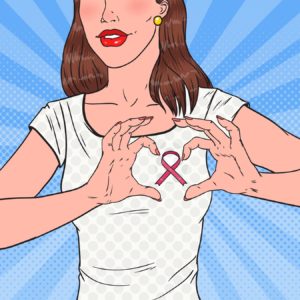A cancer diagnosis is hard. For lots of folks, the Covid Crisis is troubling and can cause a great deal of concern. There are many things you can do to help ease the worry and there is a lot of help out there.
I am worried because my doctor changed my treatment plan. Am I still getting the best care?
Because of the pandemic, some of your treatments and hospital/Doctor visits may change. Your Doctor appointments may be changed to a telephone or Zoom appointment. You may miss your regular face to face with your Doctor or treatment center.
Your treatment team will work to help you and to protect you from Coronavirus. Talk to your doctor or Nurse Practioner if you have concerns about the virus. Try writing down all your concerns so you can get all of your questions and concerns addressed.
It is natural for you to have questions and concerns about the virus and its impact on your treatment.
How to handle concern and anxiety
It can be hard to obey the stay at home requirements and overcome the need to reduce face to face visits with your care team. Addressing these worries is important. Talk with friends and loved ones by phone or internet (Zoom or Skype etc.).
You may want to reduce the time spent watching TV news or online news.
Tips
- Have a routine
- Eat a healthy diet, drink plenty of fluids, and avoid getting into unhealthy habits such as smoking or drinking alcohol.
- Keep active – there are multiple sites offering tips for keeping fit at home
- Try to do things you enjoy such as reading, jigsaws, cooking, drawing.
- Keep in contact with family and friends – use an app so you can see them, you could eat a meal together while chatting.
- Get fresh air – open your windows, if you have a garden go in it, or sit on your step keeping at least 6 feet distance from anyone.
Can I get help with getting food and medicines?
Ask friends and family to help pick up shopping or organize deliveries if possible. If this is difficult, there may a local volunteer group or charities that can help. Some of these have been formed as a result of the virus.
Many local authorities have developed services to help with things like shopping and getting medicines. Look at your local government websites or contact them directly to see what help they can offer you.
Coronavirus (COVID-19) and cancer treatment
Your doctors will aim to continue with your treatment wherever possible. But they might need to change your treatment or prioritize certain treatments over others.
Talk to your health care team about the effect of the coronavirus outbreak on your treatment plan. They know about your individual situation and will try to work with you to find the best plan for you.
It might mean that how you have treatment is different, such as taking tablets instead of having a, IV or you might have your treatment in a different location. It is understandable that you might worry about this, understanding more about these possible changes can help you to cope with them.
The coronavirus causes an illness called COVID-19 which can affect your lungs and airways. For most people, the virus won’t cause serious problems. But for some people with cancer, the virus can have serious complications. This is because cancer and treatment can weaken your immune system.
How do doctors decide about changes to my treatment plan?
Treatment risks and benefits
When you begin cancer treatment, your doctors weigh the risks and benefits of treatment and discuss these with you. But the risks of your current treatment plan might have changed because of the coronavirus.
Treatment risks include:
- how your cancer treatments affect your immune system – you’re more at risk of becoming seriously ill from COVID 19 if your immune system is weak after treatment
- exposure to the virus during hospital visits – your team might look at how you change your treatment to reduce your hospital visits
Your treatment might aim to:
- cure your cancer
- lower the chance of your cancer coming back
- help you live longer with your cancer
- control symptoms so you are more comfortable
Your doctors will carefully weigh the treatment benefit with the risks of treatment. They will discuss this with you.
Urgency
Your doctors will also consider how urgent your treatment is.
Although doctors usually treat cancer urgently, some treatments are more urgent than others. In some emergency situations, delaying treatment could be life threatening or result in long term damage. But in other situations, delaying treatment might not make a big difference to the outcome.
Prioritizing care
Your doctors must consider the impact of the coronavirus outbreak on all health services. For example, it’s likely that there will be staff and bed shortages. This means they might need to delay or rearrange treatments. Because of this they might need to prioritize some treatments over others.
Hospital visits
You may visit the hospital regularly if you’re having cancer treatment. These visits might be for treatment, tests or appointments with your healthcare team.
Visiting the hospital increases your risk of being exposed to and getting the coronavirus. So, your healthcare team might make changes to reduce your hospital visits and to lower the amount of time you spend in the hospital.
These changes might include:
- asking you to come to your appointments on your own without your caregiver to lower the risk of spreading the infection
- texting you when they’re ready to see you so you don’t have to wait around inside the hospital
- offering you appointments over the telephone
- delivering medicines to your home, or finding other places for you to pick up medicines
Before you have treatment
Your hospital will have specific guidelines in place to protect you and others from getting or spreading the coronavirus during treatment. How you need to prepare for treatment may vary depending on where you live.
Your hospital might:
- Arrange a coronavirus test several days before a planned hospital admission or on admission,
- If it’s an emergency, ask you and everyone you live with to isolate for 14 days before a planned hospital admission (including day surgery)
Coronavirus and Cancer Surgery
Will my surgery go ahead?
You will be aware that the coronavirus outbreak is having a huge impact on healthcare services. You might feel worried about how this will affect your surgery.
Your doctors will plan to carry out surgery as planned whenever possible. But there are pressures such as shortages in staff, hospital beds and intensive care beds. So, they might need to make changes to your planned surgery.
They will also carefully consider risks to you if you catch COVID-19 during your hospital stay. For example, having a big operation increases your risk of getting an infection, including coronavirus. With some operations this risk is greater than the benefit of having surgery. This might mean that your surgery is delayed or that they suggest another type of treatment.
Your care team will contact you to talk about your surgery.
Getting the most out of your telephone appointment
You’re likely to have some telephone appointments with your doctor, rather than seeing them in the hospital.
When you speak to the doctor, it can be difficult to remember everything you want to say. And it can be difficult to remember everything they say, especially on the phone. These tips will help you get the most out of your telephone appointment.
Tips
- Find a quiet part of the house to take the call – your doctor will hopefully give you an idea of what time of day they will call you.
- You can ask someone to listen in for support – you can put your phone on loudspeaker to do this. They could also ask questions and help you remember what the doctor says.
- Write down a list of questions before the call and think about what you want to find out from the doctor.
- Tell your doctor if you are worried about anything in particular.
- Ask them to explain anything you don’t understand.
- Ask the doctor who you can call if you have any further questions after your phone appointment.
Will my cancer treatment continue?
Your doctors will aim to continue with your treatment wherever possible. But they might need to change your treatment or prioritize certain treatments over others.
How you might feel
There have been several reports in the media about delays in getting a diagnosis of cancer or starting treatment. Hearing this is bound to add to your anxiety around your diagnosis and treatment.
Apart from feeling anxious, it is understandable that you might also feel let down or disappointed by the health service. All this can add to your anger of having to deal with cancer. There is no right or wrong way to feel during this time.
To help support yourself and to feel more in control of your health during this period of waiting, try to focus on three aspects of your health:
- eat a balanced diet
- stay physically active
- look after your mental wellbeing
This advice might feel like the last thing you’d like to do if you’re feeling very anxious, but it can help you to feel more in control of your physical and mental health. By feeling more in control, you can cope better during treatment and recover better.
What to ask your doctor
You will probably have some questions about your cancer treatment and COVID-19. Here are some suggestions for questions you might want to ask your doctor:
- What are the risks to me if I catch COVID-19?
- How does my cancer treatment affect my risk of becoming seriously ill from COVID-19?
- Are there any changes you can make to my treatment to lower the risk of getting COVID-19 or becoming seriously ill if I do get it?
- What should I do if I, or someone I live with, gets COVID-19?
- Will my treatment continue if I have confirmed or suspected COVID-19?
- My treatment has been delayed – how long will this be for, and when can I expect to have the treatment?
- Will a delay to my treatment affect how well my treatment will work (the prognosis)?
- My treatment is now at a different hospital – will you still treat me or will I see another doctor?
- Can you explain the reasons for making changes to my treatment plan?
A Visit to the Hospital During the Pandemic
Many hospital appointments are changing to telephone or video appointments. But there might be situations when you need to see your team for a face-to-face appointment or go to the hospital for treatment.
Most hospital teams will advise you not to use public transport, but to go by car instead. Ask a friend or family member to drive you if you can’t drive. They won’t be able to go into the appointment with you and will need to wait in the car for you.
Try to practice social distancing with the person driving you, sit as far away as possible from them. You should both wear face coverings. Avoid touching your mouth, nose and eyes. Wash your hands where possible or use a hand sanitizer gel before, during and after the journey.
Coronavirus (COVID-19) and cancer treatment
Your doctors will aim to continue with your treatment wherever possible. But they might need to change your treatment or prioritize certain treatments over others.
Talk to your health care team about the effect of the coronavirus outbreak on your treatment plan. They know about your individual situation and will try to work with you to find the best plan for you.
It might mean that how you have treatment is different, such as taking pills instead of having an IV infusion or you might have your treatment in a different location. It is understandable that you might worry about this. Understanding more about these possible changes can help you to cope with them.
The coronavirus causes an illness called COVID-19 which can affect your lungs and airways. For most people, the virus won’t cause serious problems. But for some people with cancer, the virus can have serious complications. This is because cancer and treatment can weaken your immune system.
How do doctors decide about changes to my treatment plan?
Treatment risks and benefits
When you begin cancer treatment, your doctors weigh the risks and benefits of treatment and discuss these with you. But the risks of your current treatment plan might have changed because of the coronavirus.
Treatment risks include:
- how your cancer treatments affect your immune system – you’re more at risk of becoming seriously ill from COVID 19 if your immune system is weak after treatment
- exposure to the virus during hospital visits – your team might look at how you have your treatment to reduce your hospital visits
Treatment benefit usually refers to the aim of your treatment.
Your treatment might aim to:
- cure your cancer
- lower the chance of your cancer coming back
- help you live longer with your cancer
- control symptoms so you are more comfortable
Your doctors will carefully weigh the treatment benefit with the risks of treatment. They will discuss this with you.
Urgency
Your doctors will also consider how urgent your treatment is.
Although doctors usually treat cancer urgently, some treatments are more urgent than others. In some emergency situations, delaying treatment could be life threatening or result in long term damage. But in other situations, delaying treatment might not make a big difference to the outcome.
Before you have treatment
Your hospital will have specific guidelines in place to protect you and others from getting or spreading the coronavirus during treatment. How you need to prepare for treatment may vary depending on where you live.
Your hospital might:
- arrange a coronavirus test several days before a planned hospital admission or on admission, if it’s an emergency
- ask you and everyone you live with to isolate for 14 days before a planned hospital admission (including day surgery)
Getting the most out of your telephone appointment
You’re likely to have some telephone appointments with your specialist doctor, rather than seeing them in the hospital or their offices.
When you speak to the doctor, it can be difficult to remember everything you want to say. And it can be difficult to remember everything they say, especially on the phone. These tips will help you get the most out of your telephone appointment.
Tips
- Find a quiet part of the house to take the call – your doctor will hopefully give you an idea of what time of day they will call you.
- You can ask someone to listen in for support – you can put your phone on loudspeaker to do this. They could also ask questions and help you remember what the doctor says.
- Write down a list of questions before the call and think about what you want to find out from the doctor.
- Tell your doctor if you are worried about anything in particular.
- Ask them to explain anything you don’t understand.
- Ask the doctor who you can call if you have any further questions after your phone appointment.
Will my chemotherapy, immunotherapy and other cancer drug treatments continue?
Your healthcare team might review your chemotherapy and cancer drug treatment plan.
Chemotherapy uses anti-cancer (cytotoxic) drugs to destroy cancer cells. Other cancer drugs include targeted cancer drugs and immunotherapy.
Your healthcare team will weigh the risks and benefits of your treatment. The risks of your current treatment plan might have changed because of the coronavirus. This is because cancer drug treatments can increase the risk of complications from COVID-19.
They will contact you if there are any changes to your care or treatment.
Why do cancer drug treatments increase the risk of complications from COVID-19?
Chemotherapy can stop your bone marrow from making enough white blood cells. White blood cells are part of your immune system.
Some targeted cancer drugs and immunotherapy drugs also affect how well your immune system works.
The immune system protects the body against illness and infection caused by viruses like coronavirus. Having a weak immune system can mean you are less able to fight these infections.
Some cancer drugs affect the immune system more than others. Your doctor will look at your individual treatment plan and assess the risks to you. They can tell you whether your treatment increases your risk of complications from COVID-19.
What do I do if I am in treatment and develop symptoms of COVID-19?
The symptoms of coronavirus include:
- a high temperature of above 99 degrees and, or
- a new continuous cough – this means coughing a lot for more than an hour, or 3 or more coughing episodes in 24 hours (if you usually have a cough, it may be worse than usual)
- a loss of, or change in, your normal sense of taste or smell
Contact your cancer advice line, chemotherapy helpline or treatment center if you have these symptoms and you are having cancer treatment or have cancer that affects your immune system.
You should do this as soon as possible if you have these symptoms and, or you feel unwell. You can also get other types of infection so it’s important you contact your advice line if you have any new or unusual symptoms.
Some targeted cancer drugs can cause a fever. This might be confusing as this is also a symptom of COVID-19. You should still contact your healthcare team if you have a fever.
Some cancer drugs can also cause a loss of, or change in, sense of taste or smell. So, it might be hard to know whether the change is caused by your treatment or the virus. Contact your healthcare team if you have these symptoms.
Your healthcare team will assess you over the phone and might ask you to stay at home. But you should speak to your advice line or healthcare team immediately.
Contact your advice line or healthcare team as soon as possible if you have symptoms. Or call 911 immediately if you are seriously ill.
How you might feel
There have been several reports in the media about delays in getting a diagnosis of cancer or starting treatment. In most cases, delays happen because your medical care team is trying to catch up with the changes caused by coronavirus. But hearing this is bound to add to your anxiety around your diagnosis and needing treatment.
Apart from feeling anxious, it is understandable that you might also feel let down or disappointed by the treatment you receive. All this can add to your anger of having to deal with cancer. There is no right or wrong way to feel during this time.
To help support yourself and to feel more in control of your health during this period of waiting, try to focus on three aspects of your health:
- eat a balanced diet
- stay physically active
- look after your mental wellbeing
This advice might feel like the last thing you’d like to do if you’re feeling very anxious, but it can help you to feel more in control of your physical and mental health. By feeling more in control, you can cope better during treatment and recover better.
Living well with cancer during the coronavirus pandemic
You can feel more in control of your health when you have cancer by eating a balanced diet, staying physically active, and looking after your mental wellbeing.
What you can do
There are three things that you can do to feel more in control of your health when you’re living with cancer or waiting to start treatment during the coronavirus pandemic. Try to:
- eat a balanced diet
- stay physically active
- look after your mental wellbeing
If you get support early and live as healthily as possible, you are more likely to:
- cope better with cancer treatment
- have fewer side effects
- have better long-term health
This video explains the three things you can to help you feel more in control of your health.
Eat a balanced diet
Why eating and drinking a balanced diet is important
A balanced diet means eating foods from all the food groups that your body needs.
Eating and drinking a balanced diet can help your body to:
- cope with treatment side effects
- handle the best dose of certain treatments to treat your cancer
- recover and heal faster
- fight off infections
- feel stronger, healthier and have more energy
So, eating and drinking well can help you to cope better and recover faster. This could improve your chance of survival.
A balanced diet, with plenty of calories, also helps your immune system to work well. A healthy immune system can help you to fight off infections and kill cancer cells.
A balanced diet
Try to eat foods from all food groups. Foods to include are:
- beans, pulses, fish, eggs, meat and other proteins
- potatoes, bread, rice, pasta and other starchy carbohydrates
- fruit and vegetables
- oil and spreads (fats)
- milk, yoghurt and cheese (dairy products)
Also, drink 8 to 10 glasses of fluid per day. You can drink water, vitamin water and some tea or coffee.
If you have diet problems
Some people living with cancer or waiting to start treatment can have diet problems. These include:
- taste changes and loss of appetite
- weight loss
- difficulty swallowing
- digestion problems
- cachexia (wasting syndrome)
- not enough fluid in the body (dehydration)
Talk to your GP or specialist nurse if you have problems with eating. They can refer you to a dietitian.
Stay physically active
Why physical activity is important
Being physically active means any movement that uses your muscles and more energy than when you’re resting.
Being physically active during the coronavirus pandemic doesn’t have to mean joining an online exercise class. It can also be walking to the shops, walking up the stairs, gardening or dancing.
Research has shown that being active can help people with cancer to:
- reduce anxiety
- improve depression
- reduce fatigue
- improve quality of life during and after cancer treatment
- prevent or improve lymphoedema (a type of swelling caused by treatment to lymph nodes)
- improve general physical functioning
Physical activity can be of a:
- moderate-intensity – this is when the activity makes you feel warmer, and breathe faster, but you can still talk; for example, brisk walking, cycling, gardening or housework
- vigorous-intensity – this is an activity that raises your heart rate and makes you start to sweat and feel out of breath; for example, running, aerobics and fast cycling
Guidelines
It is not possible to have one set of exercise guidelines to cover everyone with cancer. Everyone is different in terms of how much physical activity they can do. And there are many types of cancer and treatments. Check with your doctor if you’re not sure about a particular type of exercise.
International guidelines say that it is safe to be active during cancer treatment and after. Also, people with cancer should try to be active and get back to their normal activities as soon as possible.
All adults should try to do at least one of the following ways of exercising:
- 150 minutes of moderate intensity activity per week; for example, 30 minutes 5 times per week
- 75 minutes of vigorous activity per week
Ir is also important that adults do some strength building exercise twice a week; for example, weight training or yoga.
Talk to your Doctor or specialist nurse if you have problems that stop you from being physically active.
Look after your mental wellbeing
Living with cancer or waiting to start cancer treatment, is not easy, and the coronavirus pandemic has made it even more difficult for people. Getting support from your loved ones can be harder at the moment. Social distancing can limit the contact you have with them. So, you might need to think differently about how you do this.
You might feel more vulnerable to getting the virus because you’ve had treatment or are going through treatment. Or if you’re waiting to start treatment, you might worry that your cancer will grow if you must wait too long. Most people will feel a range of emotions during this time. There is no right or wrong way to feel.
People living with mental health problems often find it harder to cope during times of stress. So, if you are living with cancer as well or are waiting to start treatment, added worries about the coronavirus pandemic might cause you to struggle more.
Spending more time indoors on your own might make it more difficult to look after your mental health in the ways that you usually do.
It is important that you take extra care of yourself during this time. Get all the support you can and reach out to others.
Research on some cancers shows that if you get support with your mental health early, you are more likely to cope better with cancer treatment. It might also help you to recover better and live life as fully as you can before, during and after treatment.
Talk to your Doctor or specialist nurse if you are worried about your mental health.





